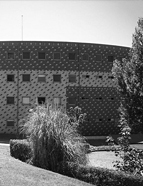

Helena Osswald (b. 1957), most certainly one of the most cerebral historians of the Porto School in recent times, took up office in 1981. With a keen interest in the family structures and population dynamics of Porto in the modern era, she developed a thesis on this for pedagogical and scientific examinations (1985; later published in the USA) and a doctoral paper (2008). She collaborated in the afore-mentioned vol. VIII of the New History of Portugal, by Joel Serrão and Oliveira Marques.
Amélia Polónia da Silva (b. 1961) emerged some time later (1985-ff.): working initially with Cândido dos Santos, she prepared a thesis with him for pedagogical and scientific examinations on Cardinal D. Henrique as Archbishop of Évora (1990); she dedicated a biography to the later purple-King in 2005, in the afore-mentioned Círculo de Leitores collection. However, in the 1990s, she was diverted to the field of the History of Expansion by the system, which was eager to ensure internal researchers in this area: fortunately with very positive outcomes - in 2000 she defended a doctoral thesis on the port of Vila de Conde in the context of the 16th century navigations (supervisor: João Francisco Marques). While still studying 16th century cultural and religious history, Amélia Polónia has designed highly demanding international programmes precisely in the fields of the coast and port structures. In a somewhat 'thankless' area of the DHEPI [Departament of History and Political and International Studies]- which boasted six full professors in the 1990s, and then none from 2007 to 2010, having had Elvira Mea (2010) for a few months, and which today finds itself empty once again in this regard -, the name Amélia Polónia, along with that of Inês Amorim and Helena Osswald, promises a future in one of the sectors in which the 4th Cluster of the FL/UP most precociously established itself.
The full emergence of Contemporary History (19th-20th centuries) was, in fact, relatively late: 1994 - somewhat paradoxical, considering that the 4th Cluster already boasted 4 (four !!!!) authors with theses on the 19th century in 1980: Victor de Sá (Sorbonne, 1969), Luís de Oliveira Ramos (UP, 1972), Francisco Fortunato Queirós (UP, 1979) and Fernando de Sousa (UP, 1980). Episodes largely of petite histoire will help explain this circumstance.
